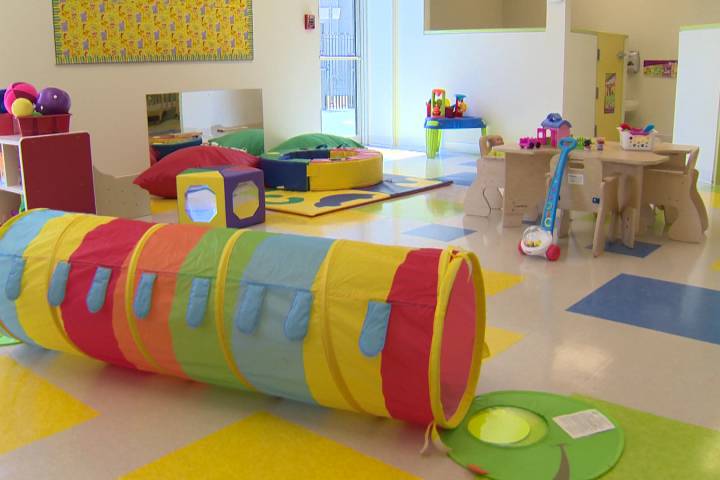I am beginning to see a trend these days that the left’s solution to everything is to de-fund private and independent service providers and impose a government monopoly on everything.

Progress Alberta wants to end funding for private schools. Former education minister David King wants to eliminate the Catholic school system. Dying with Dignity wants to de-fund facilities that won’t perform assisted death. Friends of Medicare wants to stamp out private clinics. Now we’ve got a new one: child care.
The Alberta Federation of Labour wants to phase out funding for parents who send their kids to a private day care. They are in year three of a campaign to convince the Alberta government to institute a $25-a-day universal day-care program delivered by the public sector. We should pay close attention to what they are asking for. Considering the province has already commenced a pilot project for a $25 a day plan, they seem to have the ear of government.
The AFL makes a good point about the number of kids living below the low-income cutoff — 84,000 — and the need to support their parents with affordable child care to be able to get them off to a good start. I could be persuaded to get behind that.
I understand the prime childbearing years are between age 25 and 35 — when young couples are just starting their careers, are likely at the lower end of the income scale, and are shouldering a lot of debt. Paying completely for child care out of pocket could be an overwhelming burden for many families.

Get daily National news
Right now, parents can be subsidized up to $638 per child (depending on the child’s age) if they earn less than $50,000 a year. The subsidy begins to phase out and parents are no longer eligible at an annual income of $62,000. Considering that child care ranges from $1,000 a month to $1,800 a month, there is probably a good argument for increasing the subsidy to cover more middle income families.

WATCH: Thousands more Alberta kids getting $25-a-day child care
But the AFL loses me on two points. One, universality. Two, a public monopoly.
While I can accept that most families with kids are probably of modest means, there are also families with two lawyers making $300,000 or more a year. Why should middle class taxpayers be subsidizing rich families? AFL’s Siobhan Vipond argues that subsidizing everyone in a nationwide program would bring 300,000 more women into the workforce and generate an extra $8 billion in federal tax revenue. I suppose if making government larger is your goal, that might be persuasive. But I am not interested in maximizing the size of government. In fact, if we had fewer universal social programs we would be able to have lower taxes, and families might be able to survive on a single income and not need child care.
As for a public monopoly, Vipond argues that publicly delivered day care will be cheaper than privately delivered day care because it will eliminate “profit.” I’ve never understood the left’s resentment of private business. When a business earns profit it can be used to hire more workers, or pay them more, or offer enrichment programs, or expand the amount of spaces, or reduce fees. Profit is not a dirty word.
I also gravely doubt anything can be delivered more efficiently by a monopoly — let alone a government monopoly. Unions always brag that the reason to join a union is because they can bargain for better wages. So under a unionized public monopoly, wages will be higher, layers of administration and bureaucracy will balloon (just as it has in health care and education), and the unions will take a cut in dues. It may be cheaper for those who are being directly subsidized, because they will pay less out of pocket, but it will be a lot more expensive for taxpayers.
Maybe we need to go in the opposite direction. Maybe none of our programs should be universal. Maybe as soon as you reach a certain level of income — call it $300,000 to start — you should have to pay your own way: pay for your own health insurance, your own university, your own kids’ education, your own child care.
It’s beginning to become apparent that universality is just a ruse to get more people hooked on government and paying more in taxes. By all means, let’s be generous with those who need it. But let’s stop making subsidy junkies out of those who have the means to take care of themselves.
Danielle Smith is host of The Danielle Smith Show on Global News Radio 770 Calgary. She can be reached at danielle@770chqr.com.










Comments
Want to discuss? Please read our Commenting Policy first.